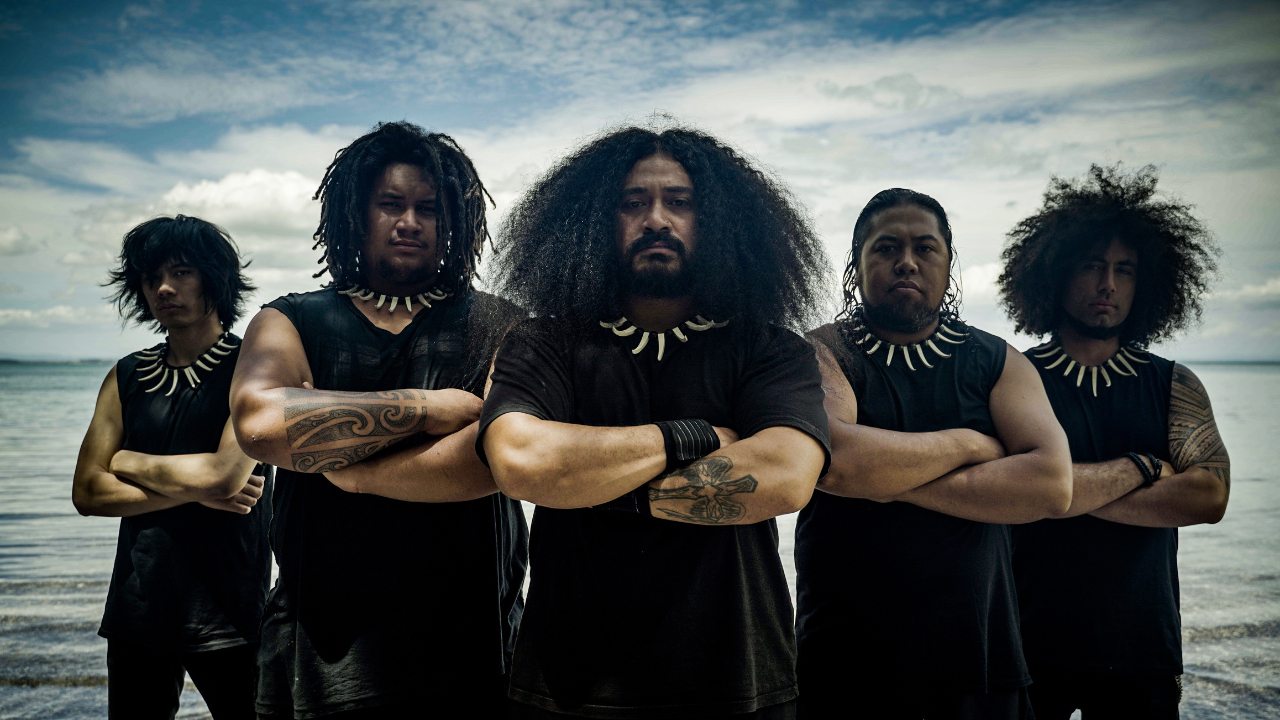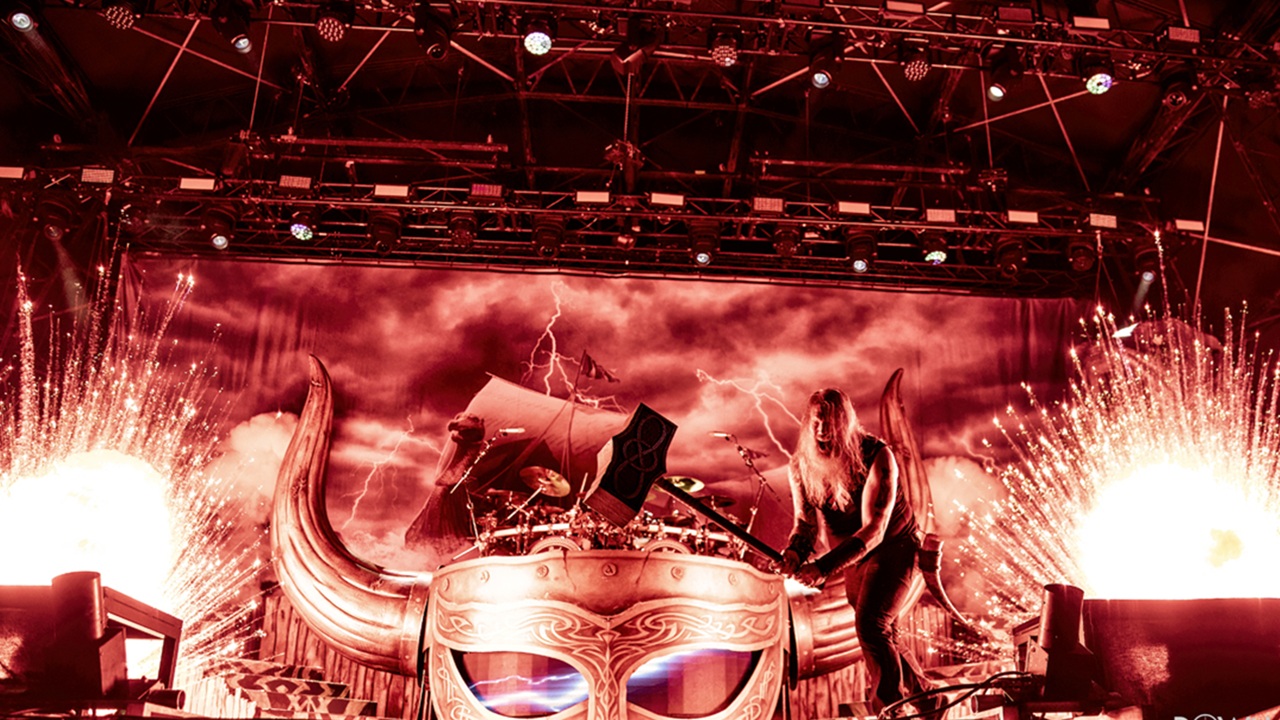“It gives you a sense of pride. That’s your language you’re singing." Meet Shepherds Reign, the fearless Samoan band putting Polynesian metal on the map
Mixing pummelling groove metal with traditional Samoan influences, Shepherds Reign are unlike anything you'll have heard this week

Select the newsletters you’d like to receive. Then, add your email to sign up.
You are now subscribed
Your newsletter sign-up was successful
Want to add more newsletters?

Every Friday
Louder
Louder’s weekly newsletter is jam-packed with the team’s personal highlights from the last seven days, including features, breaking news, reviews and tons of juicy exclusives from the world of alternative music.

Every Friday
Classic Rock
The Classic Rock newsletter is an essential read for the discerning rock fan. Every week we bring you the news, reviews and the very best features and interviews from our extensive archive. Written by rock fans for rock fans.

Every Friday
Metal Hammer
For the last four decades Metal Hammer has been the world’s greatest metal magazine. Created by metalheads for metalheads, ‘Hammer takes you behind the scenes, closer to the action, and nearer to the bands that you love the most.

Every Friday
Prog
The Prog newsletter brings you the very best of Prog Magazine and our website, every Friday. We'll deliver you the very latest news from the Prog universe, informative features and archive material from Prog’s impressive vault.
There aren't many videos that begin with an apology, but Ua Masa’a, the recent single by New Zealand-based Polynesian groove metallers Shepherds Reign, does, and with good reason. It’s harrowing. Ua Masa’a tells the story of singer Filiva’a James’s sister, who was reportedly subjected to abuse and murdered by her spouse. As he sings, Filiva’a puts himself in his sister’s place, and faces the man who’s about to take her life. There’s anguish, and terror, and fury, and it’s no less chilling for being sung in Samoan. The emotion is palpable, the anger confronting. And for Filiva’a, the song’s first live performance was a cathartic moment.
“It was beautiful,” he says, speaking from his home in Mngere, South Auckland. “After I sang my last note, I just looked down and everyone was cheering, with the band still playing away. They finished the outro, and it just felt heavy, like the world was about to break down.”
Onstage, Shepherds Reign do not look much like other bands. For starters, all the members sport huge sharks’ tooth necklaces. “We call it Ula Nifo,” says guitarist Oliver Leupolu. “It’s a traditional Samoan necklace, traditionally worn by the children of chiefs.” “Back then it was sperm whale teeth,” adds Filiva’a. “So they were big. They were such great warriors that they used to kill sperm whales, which is hard to do, you know? They’re huge!”
Filiva’a also plays log drums onstage, and in a world where indigenous musicians are increasingly willing to highlight their culture in the music they make – think the Māori metal of fellow New Zealanders Alien Weaponry, or the folk metal of Mongolia’s The Hu – Shepherds Reign are discovering that fans are becoming more and more willing to embrace the mix.
“It’s really cool,” says Oliver. “It goes together well, incorporating cultural elements into rock and metal music. We didn’t always incorporate traditional elements into our music, but when we first tried it, we definitely felt something. Singing in your language is powerful. And telling stories from your culture is powerful.”
“It gives you a sense of pride,” adds Filiva’a. “That’s your language you’re singing, your favourite genre of music in the background. We love metal, and we love Samoa, obviously, because we’re Samoan. Boom! It’s a match made in Heaven. Or Hell, depending on what you believe!”
The end result is undeniably fierce. Shepherds Reign’s sound is thoroughly modern, with clanking riffs and crushing, brutish rhythms. Not necessarily what you’d expect from a band formed by a pair of piano teachers. Filiva’a and Oliver met while tutoring in college, then added drummer Shaymen Rameka – who’d been at school with Oliver – and guitarist Gideon Voon, before having to wait for the right man to become available on bass. The right man was Joseph Oti-George, who was just 16 when the band found him, not even old enough to drink. So the guys waited until he was 18, then asked him to join.
Sign up below to get the latest from Metal Hammer, plus exclusive special offers, direct to your inbox!
“The reason why we liked him was because he was listening to the same things that we were, which was surprising,” says Filiva’a. “Whatever kids are listening to nowadays, it’s not the same as what we used to listen to.”
Line-up complete, the band made their first big splash in 2019 with the single Le Manu, whose accompanying video – three million views on YouTube and counting – is absolutely electrifying. Part fist-pumping metal anthem with occasional bursts of twin, Iron Maiden-esque guitars, and part history lesson, the song celebrates the great warrior Manu Samoa, who gives his name to the Samoan national rugby team. It also doesn’t hurt that, like The Hu, the band understand the importance of an alluring video.
“It’s very important. Very important,” stresses Filiva’a. “People nowadays, they watch stuff on YouTube and they don’t even know what it’s about. It just catches their attention. I’ve seen a lot of reaction videos for Le Manu, and the first thing they say is, ‘Oh, there’s a guy here. He’s very angry, with a massive afro. And he’s in the forest! Wow! Let’s watch it.’ And that’s what grabs them. The better you are, and the better the quality of your videos, the more attention you’re gonna get.”
Filiva’a’s towering afro isn’t the only striking thing about the frontman. Aside from that, and the log drums, and the sharks’ teeth, he’s perhaps unique in modern metal in that his main onstage instrument is the keytar, the much-mocked hybrid instrument made famous by synth pioneers like Jan Hammer and Herbie Hancock.
“I used to play a keyboard,” says Filiva’a. “I’d pick it up and hold it above my shoulder, and play it like that, like it was a keytar. It was heavy. I love incorporating piano into metal, and I needed a way to do it without using up so much space, and keytars are the way to go. Definitely.”
If this makes Shepherds Reign sound like a novelty act, fear not. They’re fearless, ferocious, utterly convincing, and in their new album Ala Mai they have made something that’s as powerful as it is unique. And, like The Hu, Alien Weaponry and Bloodywood, they’ve become cultural ambassadors along the way.
“We didn’t set out to do that,” says Oliver. “But the way that our music has travelled the world, we’ve turned into that. So there’s a bit of responsibility, an extra weight on what we do, as we represent our people.”
Originally published in Metal Hammer #378. Ala Mai is out now via Golden Robot

Online Editor at Louder/Classic Rock magazine since 2014. 40 years in music industry, online for 27. Also bylines for: Metal Hammer, Prog Magazine, The Word Magazine, The Guardian, The New Statesman, Saga, Music365. Former Head of Music at Xfm Radio, A&R at Fiction Records, early blogger, ex-roadie, published author. Once appeared in a Cure video dressed as a cowboy, and thinks any situation can be improved by the introduction of cats. Favourite Serbian trumpeter: Dejan Petrović.
